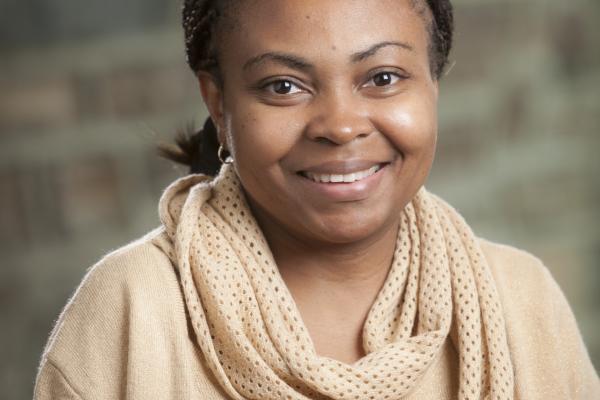
Genevieve Fouda, MD, PhD | Associate Professor in Pediatrics
As a black women and an immigrant, my focus has mostly been on being successful. It was always assumed that I have to work hard and try my best to be among the best. It is only in recent years that I have started thinking about some events and wondered-- was it discrimination? For example, when taking a Biochemistry class in graduate school I told my professor that I hadn't taken chemistry in years. She gasped and asked me to come see her if I had any questions. It was clear that she doubted my intelligence. I never went to see her and at the end of the semester she was surprised that I had the second best grade of her class (I had points taken off on several occasions during the course because of unfamiliar words or writing style). Another instance that made question discrimination was when I was going through my qualifying exam and one of the professors focused solely on grammatical errors (I am a native French speaker) instead of the scientific content of my paper, despite the fact that I had the highest grade in the class. I guess I just unconsciously learned to brush these type of events off and kept going. At the same time, I was also very fortunate to have great mentors that never let me feel that I am inferior to others.
As I look at the environment around me, I see a dramatic change in the landscape. When I started my postdoc, there was no other black postdocs in the DHVI and no black faculty members. At scientific conferences, I was often the only or one of the few black women trainees. Now there are several black faculty members at DHVI as well as black postdocs. At the SoM level, there is increasing awareness on diversity and inclusion. A few year ago, I participated in the ADVANCE-UP program which is a great program for the professional development of underrepresented minority (URM) faculty members. So I would say to the younger generation to persevere. When possible speak up (with respect of course), discuss issues with a trusted mentor or your peers, and don’t get discouraged. Having more URM faculty members at leadership position will be critical to achieve the change we need. If you get discouraged, who will be these leaders? Take every opportunity to educate and strive for excellence.
On Dr. Martin Luther King Jr day, a letter called COST (Communication to Operationalize Sustainability, Solidarity, Sponsorship, and Trust) for black faculty was sent to the Duke SoM faculty community. This letter and the accompanying testimonies of dozen of black faculty members is appealing. I think the SoM community should look at these documents and ask: “What can we change? What can be do better?” Specifically at the DHVI, I think a lot has been done recently to openly discuss racial inequalities and discrimination. This is important, because the first step in healing is to listen and create a space to talk about these sometimes difficult topics. I think the DHVI is on the right path.